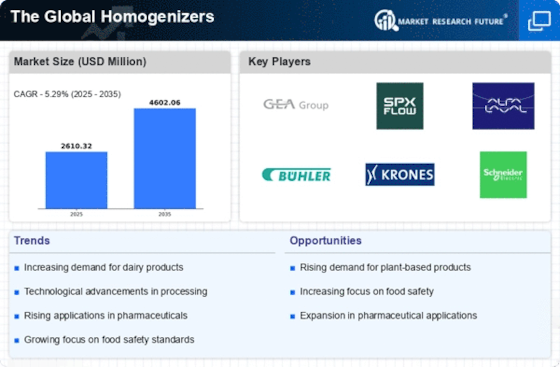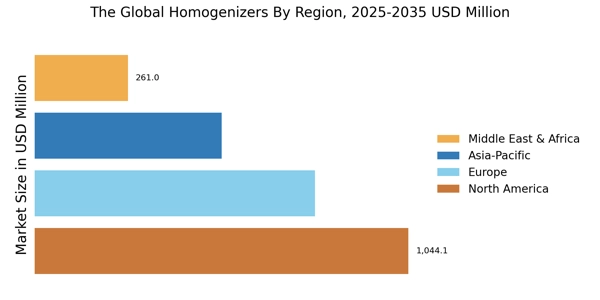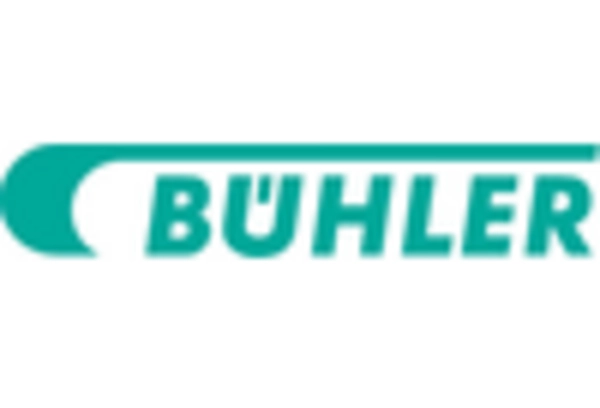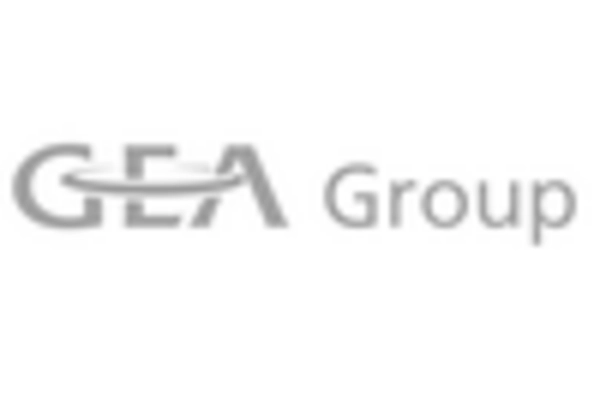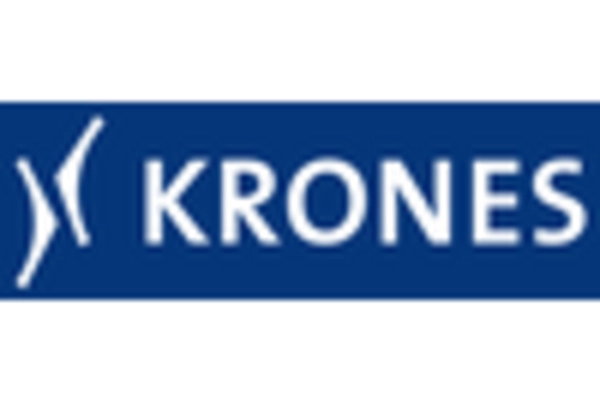Sustainability Initiatives
Sustainability initiatives are gaining traction within The Homogenizers Industry, as companies increasingly prioritize eco-friendly practices. The demand for energy-efficient homogenizers is on the rise, driven by regulatory pressures and consumer preferences for sustainable products. Manufacturers are now focusing on developing homogenizers that minimize waste and reduce carbon footprints management. This shift is not only beneficial for the environment but also aligns with the growing trend of corporate social responsibility. According to recent data, the market for energy-efficient homogenizers is expected to expand significantly, with a projected growth rate of around 7% annually. This trend indicates a broader commitment to sustainability, which is likely to shape the future of the homogenizers market.
Expansion of End-User Industries
The expansion of end-user industries is a pivotal driver for The Homogenizers Industry. Sectors such as pharmaceuticals, food and beverage, and personal care are experiencing robust growth, which in turn fuels the demand for homogenizers. The pharmaceutical industry, in particular, is witnessing an increase in the production of emulsions and suspensions, necessitating advanced homogenization techniques. Additionally, the food and beverage sector is evolving, with a growing emphasis on product innovation and quality. This expansion is expected to contribute to a market growth rate of approximately 6% annually, as manufacturers seek to enhance their production capabilities to meet the rising demands of these industries.
Rising Demand for Quality Products
The Homogenizers Industry is witnessing a rising demand for high-quality products across various sectors, including food and beverage, pharmaceuticals, and cosmetics. Consumers are increasingly discerning, seeking products that meet stringent quality standards. This trend compels manufacturers to invest in advanced homogenization technologies that ensure uniformity and stability in their products. For instance, the food and beverage sector is projected to account for a substantial share of the market, driven by the need for consistent texture and flavor in processed foods. As a result, the homogenizers market is expected to grow, with an estimated CAGR of 5.8% over the next few years, reflecting the industry's response to consumer demands for quality.
Technological Advancements in Homogenization
The Global Homogenizers Industry is experiencing a surge in technological advancements that enhance the efficiency and effectiveness of homogenization processes. Innovations such as high-pressure homogenizers and ultrasonic homogenizers are becoming increasingly prevalent. These technologies not only improve product consistency but also reduce energy consumption, which is a critical factor for manufacturers. The market is projected to grow at a compound annual growth rate (CAGR) of approximately 6.5% over the next five years, driven by these advancements. Furthermore, automation and smart technology integration are likely to streamline operations, thereby reducing labor costs and increasing production capacity. As a result, companies are investing heavily in research and development to stay competitive in this evolving landscape.
Increasing Investment in Research and Development
Increasing investment in research and development is a crucial driver for The Homogenizers Industry. Companies are allocating significant resources to innovate and improve homogenization technologies, aiming to enhance product performance and operational efficiency. This focus on R&D is particularly evident in the development of new material testing and designs that optimize the homogenization process. As competition intensifies, firms are likely to prioritize R&D to differentiate their offerings and meet evolving consumer needs. The market is projected to benefit from this trend, with an anticipated growth rate of around 5.5% over the next few years, as companies strive to stay ahead in a rapidly changing landscape.


